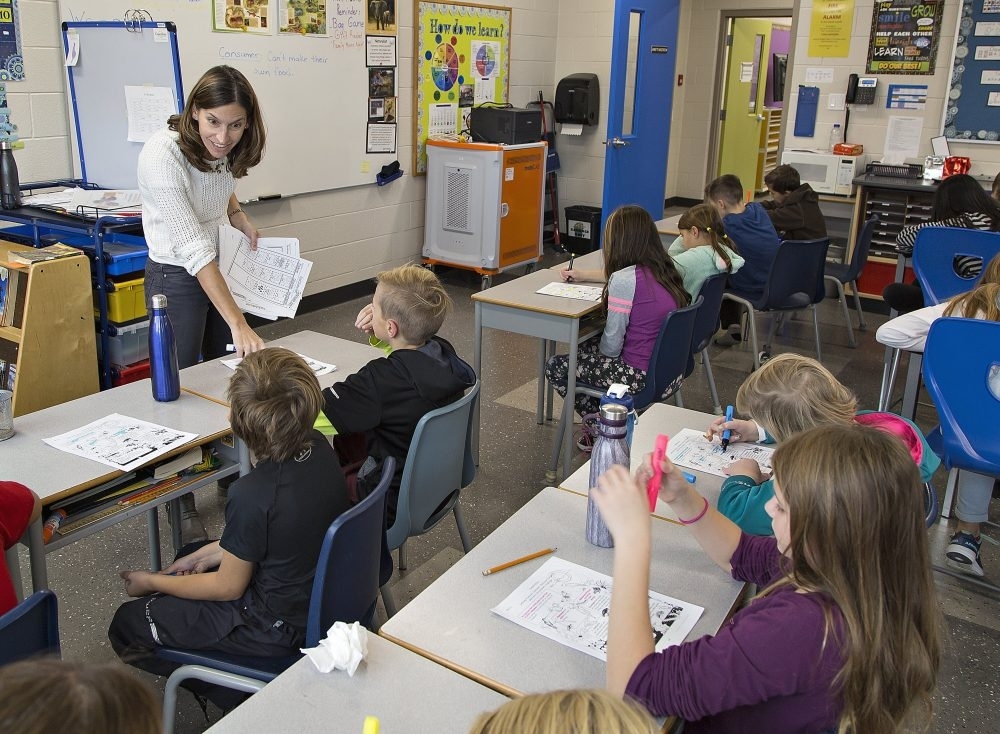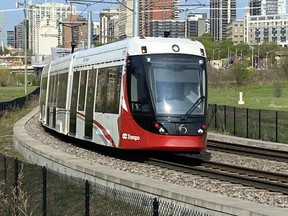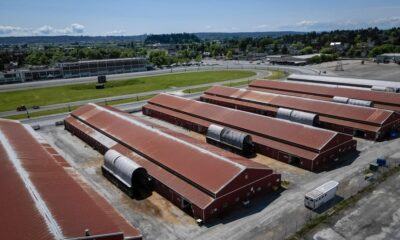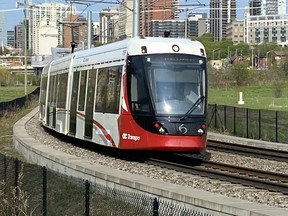Education
Parents Demand More Involvement in Winnipeg School Curricula

As students in Winnipeg gear up for the new school year, a growing number of parents are expressing frustration over their lack of involvement in educational curricula. The back-to-school season, traditionally a time filled with anticipation and excitement, has been overshadowed by parents feeling increasingly marginalized in discussions surrounding what their children are taught.
Public schools, designed to serve their communities, have seen a shift in how decisions regarding curriculum content are made. Issues such as Indigenous history, gender identity, and sexual education have ignited intense debates. Yet, many parents find themselves excluded from these critical conversations. Decisions about curricular changes are often finalized by school boards or provincial education departments without prior consultation.
According to a 2023 Fraser Institute survey, a striking 70 percent of Canadian parents desire greater input in their children’s education, but only 30 percent feel included in the decision-making process. This disconnect highlights a systemic failure to engage the very families that schools are intended to serve.
Controversial Changes in Canadian History Education
Among the most contentious changes to the curriculum is the approach to Canadian history. Textbooks and lesson plans are undergoing significant revisions, leading to a focus on historical injustices, such as residential schools and systemic discrimination. While these topics are undeniably important, many parents are concerned that the emphasis on past wrongs may overshadow the broader historical context necessary for a balanced understanding of Canada’s heritage.
Parents argue that teaching history should foster critical thinking, offering various perspectives rather than promoting a singular ideological viewpoint. The push for a more comprehensive narrative is essential in equipping students to understand their country’s complexities, rather than presenting a skewed perspective.
The implications of excluding parents from these conversations are becoming evident. In Manitoba, private school enrollment has surged by 12 percent from 2018 to 2023, with homeschooling increasing nearly 20 percent during the same period. Many families are choosing to withdraw their children from public schools, citing a lack of consultation and concerns over ideologically driven curriculum changes. This trend indicates a growing mistrust in the public education system.
The Need for Parental Involvement
Historically, curriculum updates were conducted through community engagement, including town halls and public consultations. During the 1980s and 1990s, parents had opportunities to voice their concerns, ask questions, and contribute to the educational content their children would experience. This collaborative approach fostered accountability and trust between schools and families.
Today, however, decisions are frequently made behind closed doors, leading to frustration among parents and placing teachers in challenging positions as they navigate politically charged discussions without adequate support. Parents argue that involvement does not equate to control; rather, it represents a partnership aimed at enhancing educational outcomes for students.
Several U.S. states have successfully implemented parental review panels, demonstrating that academic rigor and family engagement can coexist. By fostering open dialogue and creating advisory committees, schools can ensure that families have a meaningful voice in the education process.
The stakes are high. Public education thrives on trust and collaboration. When parents feel excluded, enrollment declines, and community ties weaken. As schools in Winnipeg face the challenge of balancing transparency, diversity, and academic integrity, it is crucial that families are included in the decision-making process rather than being informed after changes have been made.
As the new school year begins this September, parents in Winnipeg and throughout Manitoba are urged to advocate for their involvement in educational discussions. With significant changes underway in curriculum content, the future of public education hinges on collaboration among parents, educators, and administrators. The potential for meaningful dialogue exists, and it is essential that all stakeholders work together to create an inclusive educational environment.
The conversation around curriculum is not simply about politics; it is about fostering trust, ensuring transparency, and recognizing the rights of parents. For the future of public education and the well-being of students, the need for inclusion is imperative.
-

 Science1 week ago
Science1 week agoMicrosoft Confirms U.S. Law Overrules Canadian Data Sovereignty
-

 Technology1 week ago
Technology1 week agoGoogle Pixel 10 Pro Fold Specs Unveiled Ahead of Launch
-

 Technology1 week ago
Technology1 week agoWorld of Warcraft Players Buzz Over 19-Quest Bee Challenge
-

 Science5 days ago
Science5 days agoChina’s Wukong Spacesuit Sets New Standard for AI in Space
-

 Health6 days ago
Health6 days agoRideau LRT Station Closed Following Fatal Cardiac Incident
-

 Science1 week ago
Science1 week agoXi Labs Innovates with New AI Operating System Set for 2025 Launch
-

 Lifestyle6 days ago
Lifestyle6 days agoVancouver’s Mini Mini Market Showcases Young Creatives
-

 Science1 week ago
Science1 week agoInfrastructure Overhaul Drives AI Integration at JPMorgan Chase
-

 Technology1 week ago
Technology1 week agoHumanoid Robots Compete in Hilarious Debut Games in Beijing
-

 Top Stories1 week ago
Top Stories1 week agoSurrey Ends Horse Racing at Fraser Downs for Major Redevelopment
-

 Technology1 week ago
Technology1 week agoNew IDR01 Smart Ring Offers Advanced Sports Tracking for $169
-

 Technology5 days ago
Technology5 days agoDragon Ball: Sparking! Zero Launching on Switch and Switch 2 This November
-

 Business6 days ago
Business6 days agoCanadian Stock Index Rises Slightly Amid Mixed U.S. Markets
-

 Health6 days ago
Health6 days agoB.C. Review Urges Changes in Rare-Disease Drug Funding System
-

 Science1 week ago
Science1 week agoNew Precision Approach to Treating Depression Tailors Care to Patients
-

 Technology1 week ago
Technology1 week agoGlobal Launch of Ragnarok M: Classic Set for September 3, 2025
-

 Technology1 week ago
Technology1 week agoFuture Entertainment Launches DDoD with Gameplay Trailer Showcase
-

 Education5 days ago
Education5 days agoParents Demand a Voice in Winnipeg’s Curriculum Changes
-

 Technology1 week ago
Technology1 week agoInnovative 140W GaN Travel Adapter Combines Power and Convenience
-

 Business1 week ago
Business1 week agoNew Estimates Reveal ChatGPT-5 Energy Use Could Soar
-

 Health5 days ago
Health5 days agoRideau LRT Station Closed Following Fatal Cardiac Arrest Incident
-

 Business5 days ago
Business5 days agoAir Canada and Flight Attendants Resume Negotiations Amid Ongoing Strike
-

 Health1 week ago
Health1 week agoGiant Boba and Unique Treats Take Center Stage at Ottawa’s Newest Bubble Tea Shop
-

 Business1 week ago
Business1 week agoSimons Plans Toronto Expansion as Retail Sector Shows Resilience










